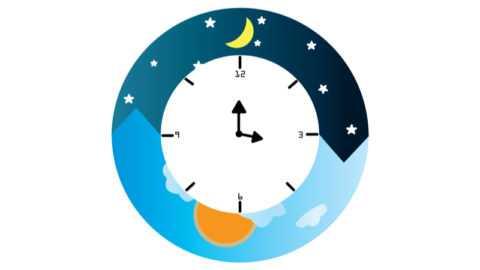The Circadian Rhythm
- The circadian rhythm is what we call our body's masterclock. It is the timekeeper of the body which keeps the cells in our body running smoothly, helps fights against chronic diseases and assists us into having a peaceful night of sleep.
- Our circadian rhythm is dependent on our daily routines and diet that keeps us mindful of our health.
- Our masterclock can be found in the suprachiasmatic nuclei (SCN) in the hypothalamus. It is what controls the functioning of each bodily process.
376
2.03K reads
CURATED FROM
IDEAS CURATED BY
The idea is part of this collection:
Learn more about health with this collection
Improving sleep through mindful breathing exercises
Practicing stress reduction and relaxation techniques
Establishing a relaxing bedtime routine
Related collections
Similar ideas to The Circadian Rhythm
The Circadian Rhythm
It is impacted by three main factors:
- Light: probably the most significant pace setter of the circadian rhythm. Staring into a bright light for 30 minutes or so can often reset your circadian rhythm regardless of what time of day it is.
- The time of day
Equinoxes and the circadian rhythm
The spring and autumn equinoxes lie halfway between the shortest and longest days of the year. At these points, day and night are mostly even lengths all over the world.
These conditions may suit the human circadian rhythm - the daily cycle that affects the body's sleep, w...
Healthy Circadian Rhythm
Healthy circadian rhythms rely on regularity and stability— for the timing of light, the timing of exercise, and the timing of meals.
Our bodies are accustomed to the exposure of light and darkness on a regular basis. The circadian rhythm is reset on a daily basis and it i...
Read & Learn
20x Faster
without
deepstash
with
deepstash
with
deepstash
Personalized microlearning
—
100+ Learning Journeys
—
Access to 200,000+ ideas
—
Access to the mobile app
—
Unlimited idea saving
—
—
Unlimited history
—
—
Unlimited listening to ideas
—
—
Downloading & offline access
—
—
Supercharge your mind with one idea per day
Enter your email and spend 1 minute every day to learn something new.
I agree to receive email updates

